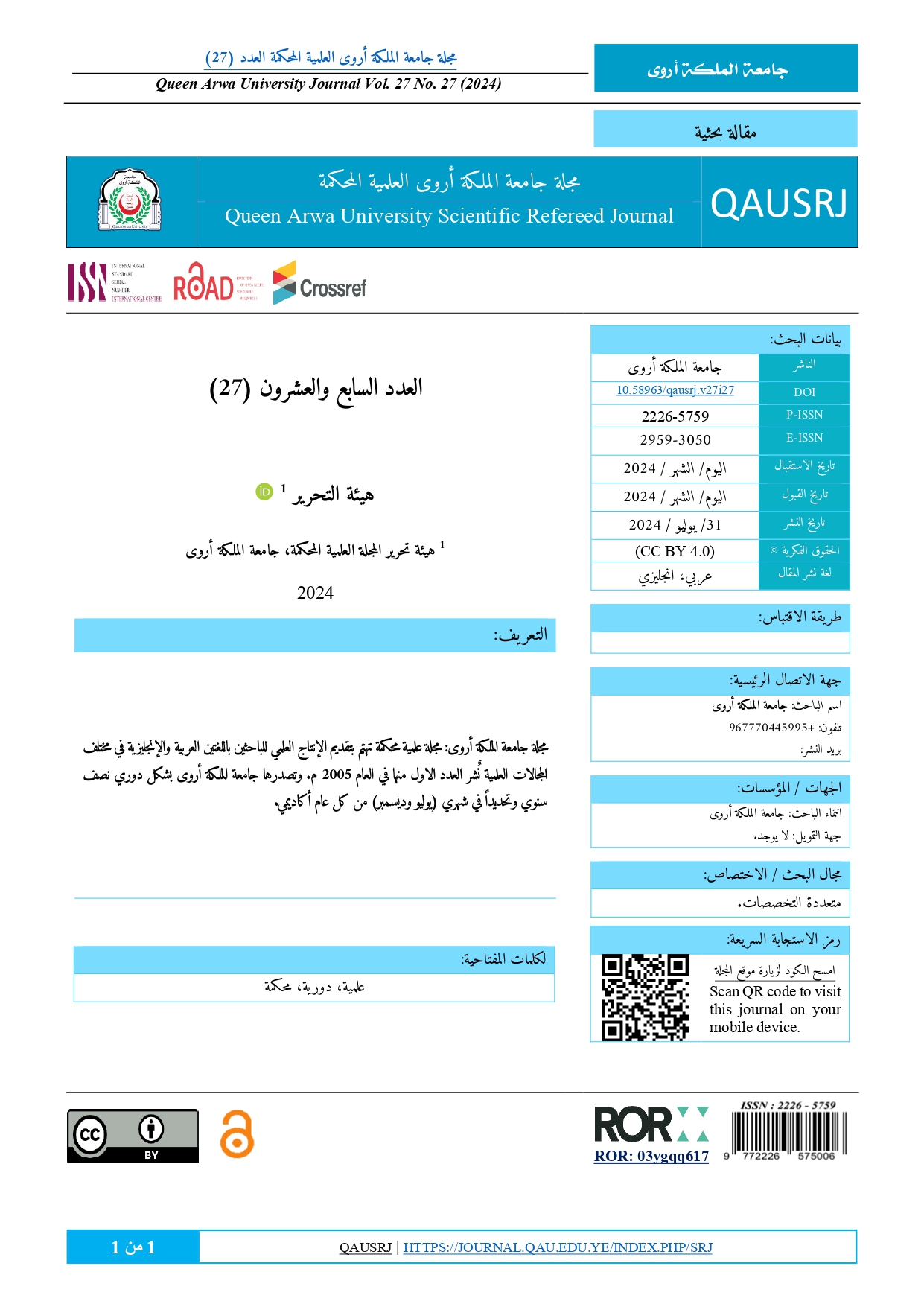Vol. 27 No. 27 (2024): Scientific Journal Referee Issue: 27

Editorial: The Importance of Scientific Research and Its Future Amid the AI Revolution
Amid the rapid global changes, scientific research remains the cornerstone of societal development and well-being. It is the driving force for innovation and progress, providing the foundation for informed decision-making and effective policies across various fields. With technological advancements, research tools have become more sophisticated and accessible, opening new horizons for researchers to refine their ideas and analyze data with greater precision and speed.
The AI revolution stands as one of the most significant transformations in scientific research, offering efficient solutions for analyzing vast amounts of data and generating accurate predictive models. AI has evolved from being merely a supportive tool to becoming a true partner in all stages of research, from data collection and analysis to writing, reviewing, and publishing. Through machine learning techniques and neural networks, AI enables the discovery of complex patterns in data that were previously unseen, contributing to the acceleration and improvement of scientific discoveries.
In this context, the management of Queen Arwa University Journal has significantly integrated AI in all stages of editing and reviewing submitted research papers. AI is now embedded in quality checks, text editing, and ensuring compliance with international academic standards. These advanced technologies enhance efficiency and speed, allowing the editorial board to focus on in-depth content analysis and the review of originality and scientific value.
Moreover, its use as an editorial and review tool demonstrates how AI can enhance the accuracy of published research by improving language quality, fact-checking, and ensuring consistency in academic style. By doing so, AI reduces the time needed to prepare research, making the process more efficient and less complex.
In conclusion, AI represents a qualitative leap in the journey of scientific research—not only by accelerating achievement but by providing tools that allow researchers to focus more on analytical and creative thinking. The future of scientific research with AI looks promising, with these technologies expected to advance knowledge and serve humanity in ways that were previously unattainable.
Editorial Board








